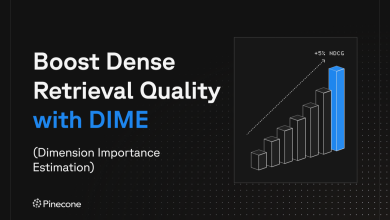
AI is fundamentally changing the way the world works, shops and interacts. We’ve reached a point where its implementation in every consumer’s life, or businesses’ core systems and processes is both inevitable and necessary. In the UK, we’re seeing a seismic shift in the marketing landscape as a result of the global push towards AI investment and adoption. From multinational corporations to budding startups, businesses are recognizing the transformative potential of AI, particularly its ability to reach and engage with their target audiences. This isn’t just hype, nor a passing phase – it’s a revolution. It’s a strategic response to evolving consumer behaviors and the ever-increasing complexity of the digital ecosystem.
Key Drivers of Adoption
So, what key factors are driving the rapid adoption of AI? Every day, marketers are inundated with consumer data stemming from numerous sources; website traffic, campaign performance, social media engagements, CRM systems and more. All of this data, with no real way of combing through it at the level of detail that would yield the most prolific results. AI’s innate ability to process and analyze data at scale, and reveal actionable insights, is invaluable.
An ongoing topic in the marketing space, and what seems to be more prominent now than ever, is the demand for more personalized experiences. Consumers now expect brands to understand their unique, individual needs and preferences in order to give them the time of day. McKinsey research revealed that 71 percent of consumers expected companies to deliver personalized interactions, and 76 percent got frustrated when it didn’t happen. Hence, the more tailored the content and offers, the more successful the campaign. In a race to adapt to these evolved demands and meet KPIs, businesses are tapping into AI-powered personalization tools that allow marketers to segment audiences with a new standard of precision, resulting in hyper-targeted content that truly resonates.
In today’s business landscape, the push for effective time management and operational efficiency has become a universal initiative, paramount in today’s fast-paced marketing environment. While AI has significant potential for improving consumer-facing campaigns, it’s also shown its value as an internal asset; automating repetitive tasks like content creation, general customer service and social media management, freeing up time for marketers to focus on the most needle-moving priorities.
We also have to consider the competitive landscape. Added pressure from competitors reaping the benefits of increased efficiency and customer engagement has forced businesses to leverage AI, so as not to lose their strategic advantage. This has created a sort of self-perpetuating cycle, where businesses speed up the adoption of AI to match pace with their rivaling counterparts and not face the risk of falling behind in the market.
How AI is Redefining Legacy Marketing Tactics
AI is fundamentally changing how we approach and execute marketing campaigns. The traditional route involved more data than we had time or bandwidth to make sense of, and laborious, manual processes. AI technologies, including machine learning and predictive analytics, can now deliver hyper-personalized experiences and anticipate customer behavior within minutes. This kind of insight is priceless, enabling marketers to target their campaigns in ways we haven’t seen before, optimize ad spend in real time and increase engagement through recommendation systems and more prompt customer care. By streamlining core processes and simultaneously improving accuracy, AI has become integral to increasing efficiency and driving higher conversion rates at an unprecedented level. Here’s a deeper look at the areas AI excels in marketing:
- AI-Driven Personalization – Analyses significant quantities of customer data to craft tailored brand experiences through dynamic website content, targeted email campaigns and more. Customized product recommendations are now based on insights from browsing habits
- Data Accessibility using Natural Language – AI democratizes access to complex data, allowing marketers to gain deeper understanding through natural language queries. This enables non-technical users to extract insights and make data-driven decisions without requiring specialized coding or data analysis skills
- Predictive Analytics – Enables businesses to anticipate trends and key indicators in customer behavior to guide a data-driven approach. Machine learning predicts churn and identifies leads and forecasts sales, allowing marketers to make proactive, informed strategy decisions. AI can detect events like cart abandonment, prompting timely interventions with targeted offers
- Automation and Efficiency – AI tools streamline day-to-day, time-consuming marketing tasks across personalized content creation, email or text message marketing, social media management, customer support, ad targeting and SEO and website optimization. Minimizes the need for human interference and thus, mitigates the chance for human error. Can also automate A/B testing for emails, landing pages and ads to quickly identify the most effective variations for better results, accelerating decision-making significantly — saving both time and valuable resources
The Challenges
Change does not come without its challenges, especially when dealing with the integration of a relatively new, hyper-powered technology that the world is still working to fully understand. Data quality presents one major hurdle, as the success of AI algorithms hinges on accurate, high-quality data to generate reliable insights. For some businesses, it remains a struggle to establish consistency in this area and ensure the integrity of their data silos. We’re also facing a growing skills gap when it comes to AI adoption. As this rapid shift has progressed, it has exposed a shortage of professionals with the necessary expertise to implement and manage AI tools. In bridging this gap, marketers are pushed to invest in continuous training and development programs to establish a true comprehension of the technology, thus ensuring its honest implementation.
Ethical concerns also play a role here. The use of AI in marketing raises issues surrounding data privacy, algorithmic bias and overall transparency, urging businesses to ensure that their AI integration initiatives are socially responsible and avoid potential data misuse. The costs of AI implementation can pose another challenge, particularly for smaller businesses with limited budgets, demanding substantial investments across technology, infrastructure and skilled talent.
The process of integrating AI into existing workflows can prove to be complicated and time-consuming in of itself. A successful adoption demands careful planning, full support from management, training and mentoring and a keen ability to pivot in real time, in order to ensure minimal disruptions to critical day-to-day operations. What many may not quite understand, is that AI adoption isn’t a static thing. Once a business takes it on, it faces an ongoing commitment to learning, growing and adapting to keep up with the technology as it evolves over time.
Looking Ahead
When people talk about AI, you’ll find the frequent use of the phrase “at-scale.” This will continue to be a key characteristic of the technology as it develops over the next several years, enabling us to generate content and analyze data at levels that are simply unreachable by any human.
Hyper-personalization, perhaps one of the more groundbreaking capabilities of AI, will only evolve to become more pinpointed and granular. Customers will receive marketing messages tailored not only to their buying behavior or demographics but to their current mood, time of day they usually shop and even the current weather conditions in their location.
User interfaces will no longer be static, but interactive and responsive. Voice assistant technology will become more nuanced and conversational, allowing marketing to be further embedded in daily interactions with AI. Generative AI will become more prominent in the production of organic visual content, generating the first drafts of designs, tailored to a specific brand’s needs, and allowing designers to step in and fine-tune as necessary.
“In real time” will take on new meaning as AI becomes a key driver of dynamic, adaptive campaigns that automatically adjust to changing market conditions and consumer demands, without the need for human intervention. Content development and optimization will be based on immediate user feedback, constantly ensuring performance improvements across search engines and social media platforms.
Continued AI adoption is key to the UK’s AI Opportunities Action Plan in an effort to boost holistic economic development and provide jobs for the future. AI adoption in the UK marketing sector has already seen significant growth, with approximately 94% of senior brand marketers reporting the incorporation of AI into their digital advertising strategies, according to Statista. This will only continue to pick up momentum; AI isn’t going anywhere, anytime soon. In fact, it will only become more intertwined with every aspect of our daily lives. It’s the blueprint for how we will engage with our customers and scale our businesses. So, it’s time to accept the inevitable. Stop looking at AI as an external force, and embrace it as a core extension of your team in order to harness its full potential.




